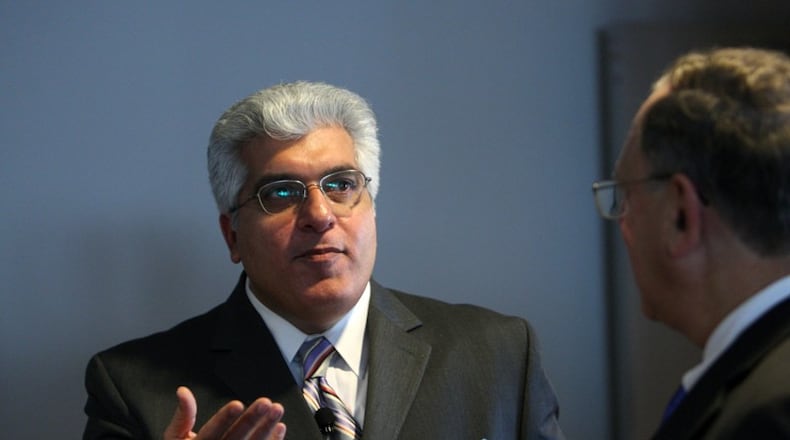Georgia’s economy is slowing down as the global worries confronting international companies seep down to local businesses, according to the quarterly outlook by the Georgia State Economic Forecasting Center.
Job growth in the state will continue this year, but less energetically than the recent past, said the center’s director Rajeev Dhawan.
Georgia should add about 76,600 jobs in 2019 and 61,700 next year – with metro Atlanta accounting for nearly 70% of them, Dhawan said.
Last year, the state added 92,500 jobs, according to the Bureau of Labor Statistics.
While growth will continue, the state’s economy will be more erratic in the short-term, Dhawan said. For example, the state started this year with two months of strong job growth, followed by a slight dip in March and a sharp loss in April.
“The economy is trying to adjust to a new growth path,” he said. “You can have a super-bad month followed by a super-good month.”
Calculating the early gains and last month's losses, government data shows the state has netted zero job growth.
Georgia hasn’t seen three consecutive months of decreases in the number of jobs since early 2010. But Dhawan shrugged off the significance of matching that streak. It doesn’t prove much, he said. “I think you’ll get another negative in May. To me, that’s no problem.”
The number of jobs in construction has increased. Georgia hiring over the winter was also juiced by preparations for a few big events in Atlanta — the Super Bowl and Atlanta United’s championship soccer game, Dhawan said.
Much of the job growth was in hospitality. “It was a one-off and then there’s a reversion to the mean. It’s like the Olympics” in 1996, he said. The data showed tremendous gains leading up that event, he said, “and then it faded away.”
The deceleration in the world’s economy could affect the state’s economy even more if Atlanta’s large, global firms cut back, Dhawan said.
Thus far, the impact of the ongoing trade battle with China has been muted, he said. Americans have seen little change in prices because of a decline in Asian currencies.
That drop made China’s exports cheaper than they would be otherwise, and it softened the blow of the tariffs. But this month, the United States jacked up tariffs from 10 percent to 25 percent on many items.
It’s not clear whether China’s currency will keep falling, he said.
Even so, other recent events could shake the country’s economy.
Oil prices have risen, and a Middle East crisis could send them higher still.
Domestically, higher interest rates also could chill growth by making it more expensive to borrow money. But Dhawan predicted that the Federal Reserve – which paused a rate-raising campaign late last year – will hold rates steady most of this year and then start dropping them to spur the economy.
And the grounding of Boeing’s troubled 737 Max was more than a one-company crisis, and its long-term effects are not yet clear, he said. “The shock is still rippling through the system.”
Some threats start closer to home. Georgia’s passage of a law restricting abortion has sparked calls among some members of the film industry to find other places to make movies and television shows. If the film industry were to make good on those threat, it could hurt the economy, he said.
Predicted job growth for Georgia job
2019: 76,600
2020: 61,700
2021: 53,500
Sources: Economic Forecasting Center, Bureau of Labor Statistics
Job additions by sector for Georgia, last 12 months
Manufacturing: 3,000
Financial: 200
Business services: 21,200
Healthcare: 14,900
Hospitality: 16,500
Sources: Economic Forecasting Center, Bureau of Labor Statistics
About the Author
Keep Reading
The Latest
Featured




